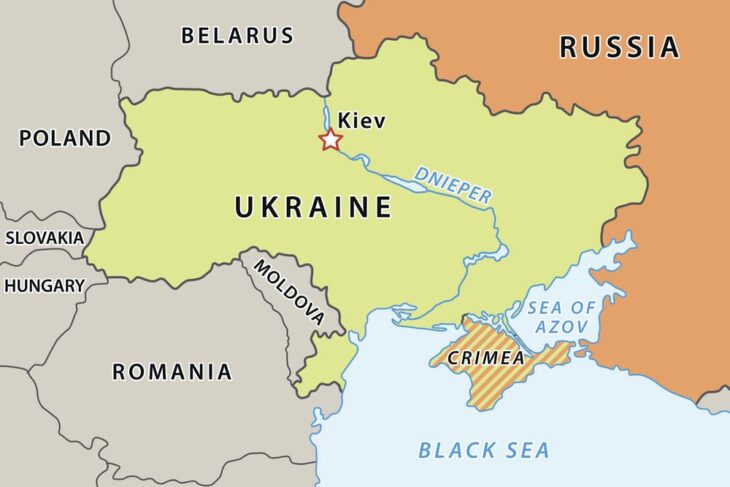
 Land and the ownership of it is a touchy topic. From Scotland to Zimbabwe, the topic stirs many emotions and talking-points.
Land and the ownership of it is a touchy topic. From Scotland to Zimbabwe, the topic stirs many emotions and talking-points.
From Guatemala to Vietnam we see where land reform can lead to violent conclusions. The situation in Jamaica is no different, where for centuries the topic of land, its ownership and land reform has been hotly debated and sometimes very violently. The situation in Jamaica is also similar to that of the rest of the world in that there has been little land reform and most of the land is in private hands.
The Jamaican land issue is a serious one and impacts the nation in many differing but ultimately negative ways. The most visible negative aspect of our land issue is that of squatting. Squatting leads to unplanned dwellings, lack of access to legal water, sewage and electricity connections. Most importantly it leaves the occupant in perpetual limbo as the owner could, at any time (rightly), kick them out thus leaving them back at square one. This breeds animosity and often leads to violence as the occupant and the legal owner may come to an impasse (such things are very real and lead to long-lasting feuds).
The issue of finance, or the access to it is also wrapped up intimately with land and its ownership. Land can be, is currently and probably will always be the best collateral a bank will take. It can’t be moved and rarely depreciates in value, therefore, those who own land have an easier time in accessing funds. The subsistence farmer who owns one acre has an easier time accessing funds when compared to the man who works a steady job at a bottling plant because of the collateral. The disparity in access to funds increases ten-fold when the farmer is compared to the large industrialist who owns the land the bottling plant is on.
The land situation and the resulting prevalence of unplanned communities is one of the root causes of the high levels of crime we experience today. The spike in crime began in the 1950s/1960s and escalated in the 1970s when many persons left the countryside aiming to find work in the already overpopulated and underbuilt capital city.
It should not be lost on us that many of the perpetrators of the violence (both political and non-aligned) then came from the same stock which populated these unplanned communities (oftentimes they were the very same ones fresh from the countryside). We see this trend continuing as young persons, mainly men, almost daily come in from the countryside aiming to find a living in the town, and as was the case in the past they almost always end up in the unplanned community.
The phrase land reform often strikes fear in the hearts of those who are perceived to have too much. However, with the Crown as the single largest landholder (the majority of which is lying idle), it is possible that those lands could be distributed to those who are the lowest on the ladder and in the most need. If there is a fear that the lands would simply be given away thus ‘teaching a bad lesson’, then the monies which the proposed recipient has in NHT could be used as a token.
Those who have not yet paid into the NHT could also be made eligible for the newly distributed lands if the state were to build houses on certain lots (they could be working farms) and rented to the prospective owner. The tenant’s rent payments would then go towards the purchase of the land, the price of which would remain the same as when handed over.
The key question however, as always, is who will oversee this distribution, as we have a torrid history of resources being used as spoils of war and divvied up along party lines, oftentimes leaving those who in theory should be benefiting from the programme with nothing. To address this concern I suggest that the persons who have not yet paid into the fund form a union, along the lines of the Union for Unemployed College Graduates in Tunisia). Then these persons who would be benefiting from the programme directly, elect amongst themselves the most trusted/capable persons to decide along with a state representative, say a high ranking secretary in the housing ministry, and someone from NLA.
With such an assembled team of functionaries and citizens, it would become extremely difficult, though admittedly not impossible, for such a programme to become a political football or strangled in its crib, as is often the case with our well-meaning programmes and policies.
What I suggest may sound sloppy, maybe a bit rough around the edges and in need of further hammering out, but it is feasible. That is to say, if we are truly serious about finding an equitable solution to our land issue it can be done, and without re-inventing the wheel.
Seriousness, that is what we need from our leaders. Are they serious when they talk of addressing these issues? The jury is no longer debating on this subject and after 50-odd years of self-rule, we have more or less the same land distribution as before. The leaders are not serious.
Land reform means self-empowerment, it means self-reliance and is a large aspect of true independence, as opposed to the word and trinkets, such as a seat at the UN. Such things are not only alien to our politicians but pose a direct threat to how they operate, therefore it is no real shock that a real sustained push for land reform has not been made by them.
The push for land reform, therefore, rests with us the people. We must agitate and we must demand that our arcane land holdings are re-distributed (even protest if our voices are not heard) as that is part of the cure which will heal the ills in this nation. The push for this will be difficult — the last real attempt being 40 years ago — but it can be done, and it is low-hanging fruit.
The truth is all other aspects of a truly just society are harder to achieve and maintain without an equitable land distribution programme because, as mentioned before, land is the ultimate form of capital. It is power in this capitalist system. He who controls the bulk of capital, calls the shots and currently, civil liberties can be withdrawn as the majority have no real power.
This would not be a magic bullet, but it would be a start as it relates to long-term societal remedies. Land reform in this nation is long overdue and the fact that we have not seriously tried to deal with it shows that we really have no problem with how the country is now and how it got there. I don’t believe that is the case, we need to push for this action. If not, we are accepting this hell we currently call home.



